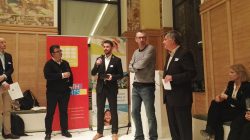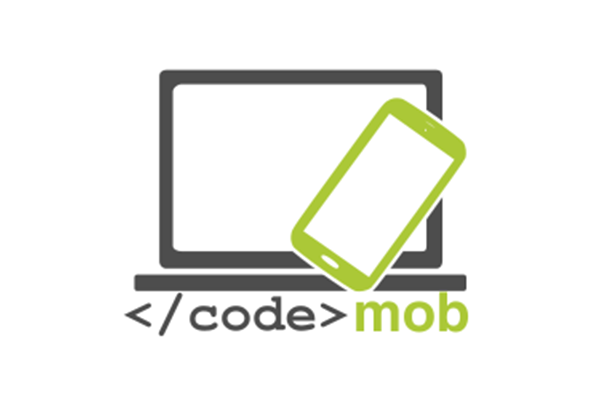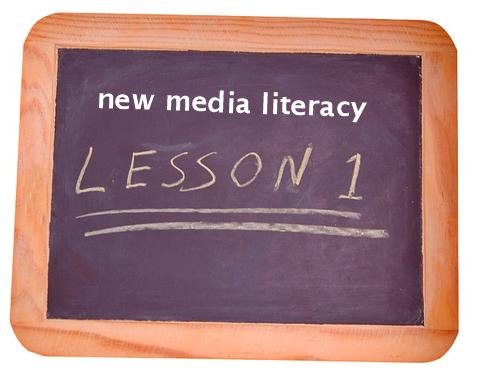15 Dec EC Media Literacy Expert Group discusses about future actions in the field
15 Dec, 2016
 On 15th November Telecentre Europe attended the Media Literacy Expert Group coordinated by DG CNECT of the European Commission. The group gathers various stakeholders working in the field of media literacy – from TV and radio broadcasters and viewers organsations, through NGOs working in the field of media literacy to ministries of culture and companies such as google and Facebook. It meets at least twice a year to exchange information on important topics.
On 15th November Telecentre Europe attended the Media Literacy Expert Group coordinated by DG CNECT of the European Commission. The group gathers various stakeholders working in the field of media literacy – from TV and radio broadcasters and viewers organsations, through NGOs working in the field of media literacy to ministries of culture and companies such as google and Facebook. It meets at least twice a year to exchange information on important topics.
93 representatives from 33 national institutions, international organisations (Unesco and Council of Europe) and professional and civil society networks attended the meeting which was devoted to four topics:
- Media literacy: coordination and synergies with other EU policies within the European Commission (namely education & culture and justice & home affairs)
EU actions related to media literacy are coordinated by DG CNECT, incl. the Media Literacy Expert Group and the EU funded pilot projects that will be launched in 2017. But several other DGs include media literacy actions, e.g. the review of the 8 key competences for life-long learning, compilation of good practices on the use of media literacy to combat radicalisation, media literacy as an enabler for participation in civic and political life, media literacy within the digital competence framework (digital skills), study on the impact of the digital era on young people and funding of film literacy actions through the Creative Europe Programme. Media literacy projects may be funded through EU programmes such as Erasmus+, the Europe for Citizens Programme of Creative Europe. Next year we can expect a specific call in Creative Europe MEDIA strand on film literacy. If you wish to go deeper in these topics, you can check:
Funding:
Erasmus+: Call for proposals 2017 (especially KA 2)
Policy actions:
Compilation of good practices on the use of media literacy to combat radicalisation
2016 Colloquium on Fundamental Rights, where a panel was devoted to media literacy
Digital skills and jobs coalition
- Media literacy: building bridges between the media industry and the education sector to develop and disseminate critical thinking tools.
Good examples on how to bring together the media sector and the education sector were provided by the French CLEMI and the Alliance Internationale des Journalistes:
– France4 TV and Clémi collaboration around the TV show “T’as Tout compris”
– Pedagogic Tool for the teachers “Médias et information : on apprend!”
– Platform Mediaeducation.fr
- Media literacy in the digital era: how to empower citizens who are active in on-line platforms with critical thinking tools?
OFCOM provided figures about media habits of UK citizens in relation to media. For example:
- 40% of adults access news online
- 20% of 16-24 only use internet for news
- Of those using internet for news, 43% get them from social media.
- 1 out of 4 thinks that the result of a search engine search is accurate information
- 40% are not able to recognise ads on search engines
Google presented the tools that they put at users’ disposal to understand better how their services work. They presented the Digital News Initiative, which supports high quality journalism through technology and innovation and the new fact-check label that appears in Google News. Facebook presented an initiative to make users reflect about their privacy settings, by pop-up screens that appear from to time to time and that ask the question: “Who would you like to see your post”?
- Presentation of the mapping of media literacy practices in EU-28 prepared by the European Audiovisual Observatory
Following a request from the European Commission, the European Audiovisual Observatory has produced a mapping of media literacy practices in EU-28 since 2010. The report describes over 500 most significant media literacy projects and a detailed description of 145 case-studies. It will published early 2017.
Slides and the video recording of the meeting are available online:
Slides: https://ec.europa.eu/digital-single-market/en/news/meetings-media-literacy-expert-group
Video recording: https://webcast.ec.europa.eu/meeting-of-the-media-literacy-expert-group-meeting-of-15-november-2016









